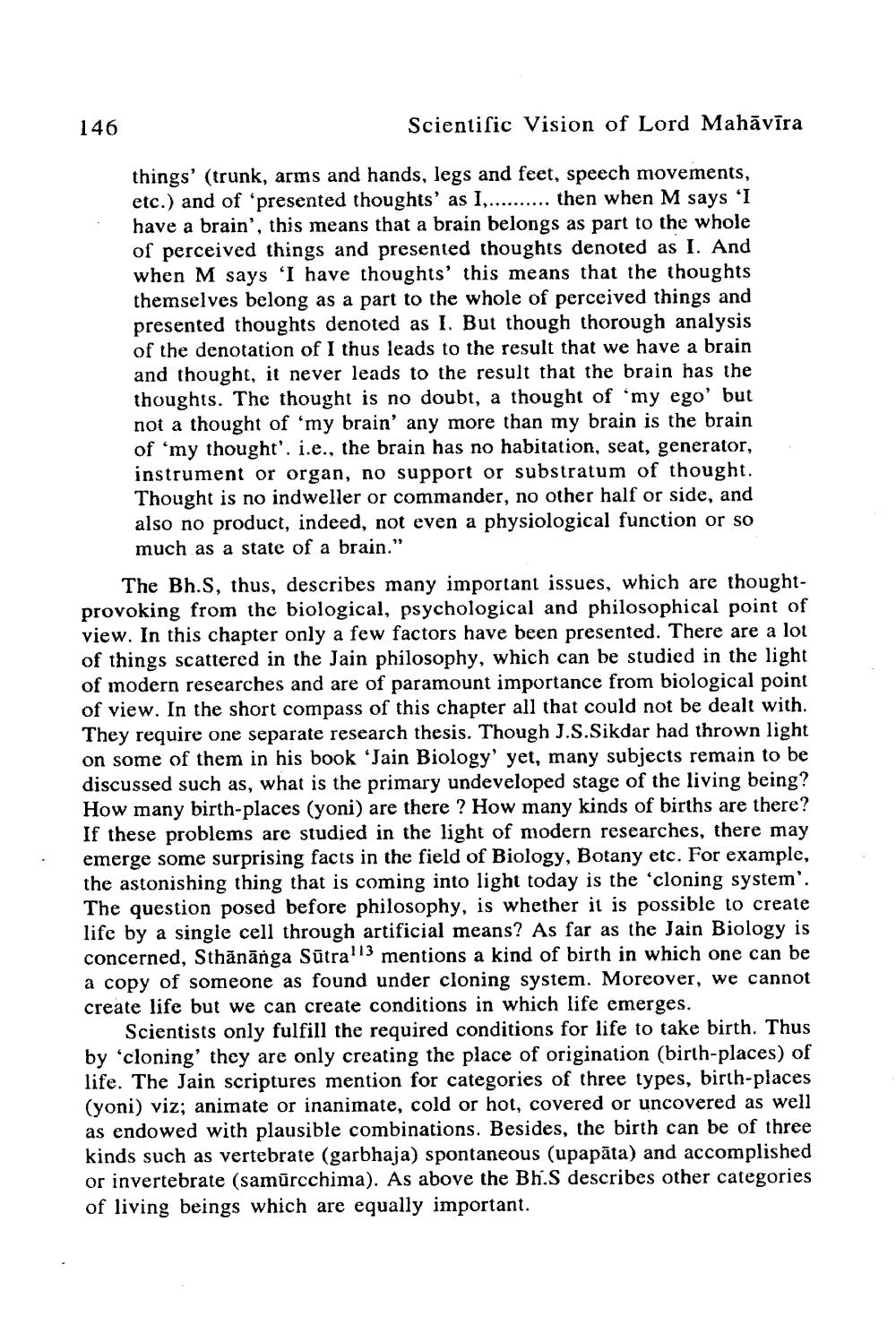________________
146
Scientific Vision of Lord Mahāvīra
things' (trunk, arms and hands, legs and feet, speech movements, etc.) and of 'presented thoughts' as I.......... then when M says 'I have a brain', this means that a brain belongs as part to the whole of perceived things and presented thoughts denoted as I. And when M says 'I have thoughts’ this means that the thoughts themselves belong as a part to the whole of perceived things and presented thoughts denoted as I. But though thorough analysis of the denotation of I thus leads to the result that we have a brain and thought, it never leads to the result that the brain has the thoughts. The thought is no doubt, a thought of 'my ego' but not a thought of 'my brain' any more than my brain is the brain of 'my thought'. i.e., the brain has no habitation, seat, generator, instrument or organ, no support or substratum of thought. Thought is no indweller or commander, no other half or side, and also no product, indeed, not even a physiological function or so much as a state of a brain."
The Bh.S, thus, describes many important issues, which are thoughtprovoking from the biological, psychological and philosophical point of view. In this chapter only a few factors have been presented. There are a lot of things scattered in the Jain philosophy, which can be studied in the light of modern researches and are of paramount importance from biological point of view. In the short compass of this chapter all that could not be dealt with. They require one separate research thesis. Though J.S.Sikdar had thrown light on some of them in his book 'Jain Biology' yet, many subjects remain to be discussed such as, what is the primary undeveloped stage of the living being? How many birth-places (yoni) are there? How many kinds of births are there? If these problems are studied in the light of modern researches, there may emerge some surprising facts in the field of Biology, Botany etc. For example, the astonishing thing that is coming into light today is the 'cloning system', The question posed before philosophy, is whether it is possible to create life by a single cell through artificial means? As far as the Jain Biology is concerned, Sthānānga Sūtra 13 mentions a kind of birth in which one can be a copy of someone as found under cloning system. Moreover, we cannot create life but we can create conditions in which life emerges.
Scientists only fulfill the required conditions for life to take birth. Thus by 'cloning' they are only creating the place of origination (birth-places) of life. The Jain scriptures mention for categories of three types, birth-places (yoni) viz; animate or inanimate, cold or hot, covered or uncovered as well as endowed with plausible combinations. Besides, the birth can be of three kinds such as vertebrate (garbhaja) spontaneous (upapāta) and accomplished or invertebrate (samūrochima). As above the Bh.S describes other categories of living beings which are equally important.




